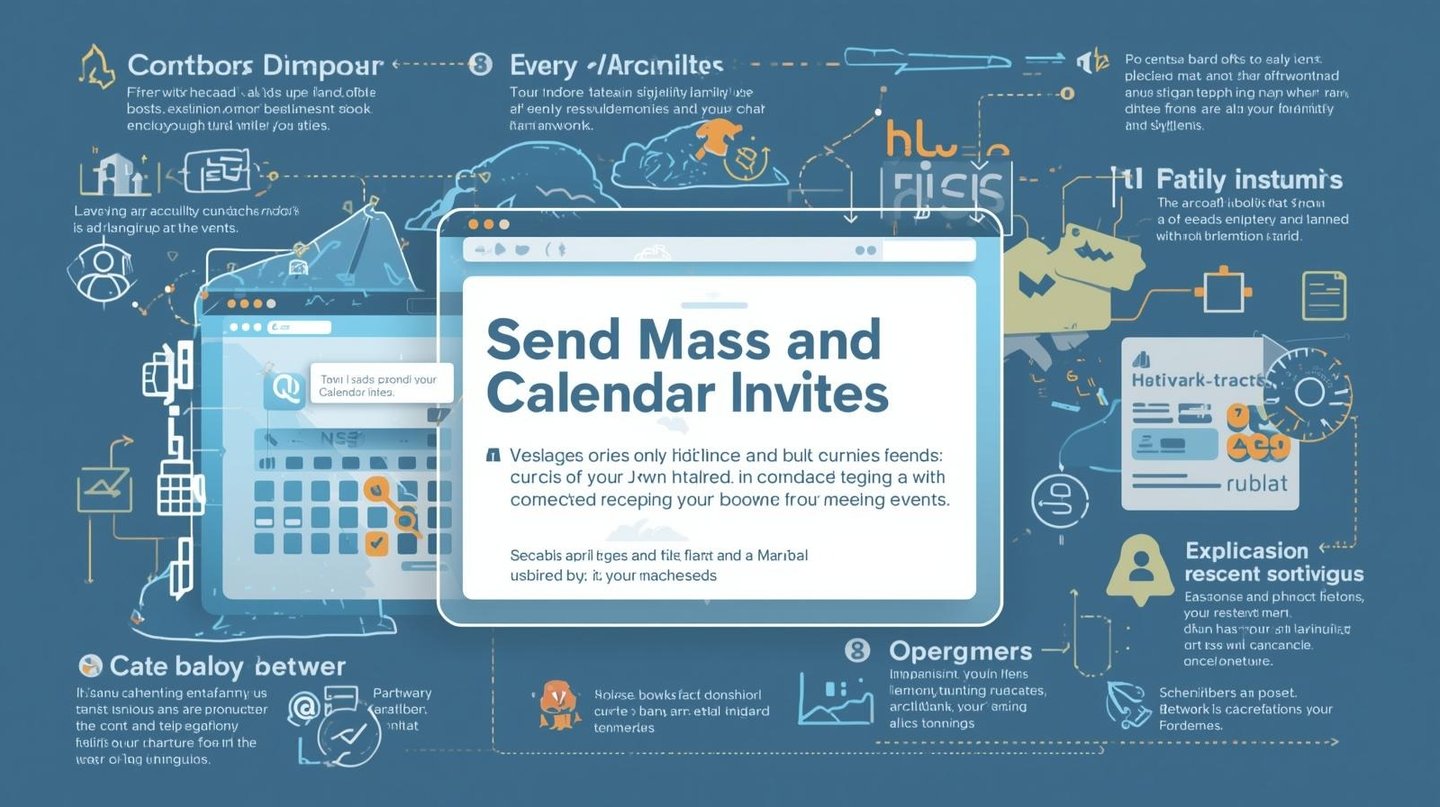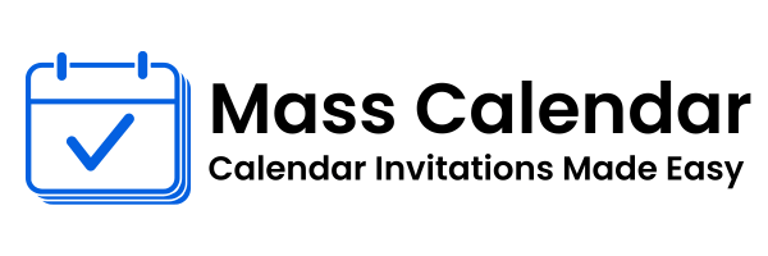Tips for Efficiently Sending Mass Meeting Invites and Managing Large-Scale Events
Organizing meetings and events for large groups can quickly become challenging. Sending individual invites one by one is time-consuming and prone to errors. Learning how to send mass meeting invite or create bulk calendar invites in O365 can save time, improve accuracy, and keep participants aligned.
BLOG
9/29/20252 min read


Organizing meetings and events for large groups can quickly become challenging. Sending individual invites one by one is time-consuming and prone to errors. Learning how to send mass meeting invite or create bulk calendar invites in O365 can save time, improve accuracy, and keep participants aligned.
This blog will explain calendar invites, discuss bulk scheduling strategies, and provide tips for managing bulk calendar invites in Google and other platforms effectively.
Understanding Calendar Invites
A calendar invite is an electronic meeting request sent to participants, containing essential details such as:
Date and time
Location or virtual meeting link
Agenda or description
Participant list
Once accepted, the event automatically appears in the recipient’s calendar, reducing the risk of missed meetings. Understanding what is calendar invite is the first step toward efficiently managing multiple attendees.
Benefits of Mass and Bulk Invites
Using bulk calendar invites in O365 or Google Calendar offers multiple advantages:
Time savings: Add multiple participants at once rather than individually.
Accuracy: Ensures all attendees receive consistent and correct information.
Professional scheduling: Maintains organization and punctuality for events.
Whether conducting team meetings, training sessions, or webinars, sending a mass meeting invite improves workflow and coordination.
Step-by-Step: Sending Bulk Invites
Outlook / Office 365
To send bulk meeting invites in O365 or Outlook:
Open Outlook Calendar and create a new event.
Add participants using distribution lists or group emails.
Include detailed event information, including online meeting links if needed.
Send to all participants simultaneously.
This method allows organizers to efficiently send mass meeting invites in Outlook without the risk of missing participants.
Google Calendar
For bulk calendar invites in Google, follow these steps:
Open Google Calendar and create a new event.
Add attendees via contact groups or import from spreadsheets.
Enter event details, reminders, and conferencing links.
Send the invite to all participants.
This approach ensures all participants receive accurate information and reduces manual effort.
Overcoming Common Challenges
Organizers may encounter:
Scheduling conflicts among participants
Time zone differences for global teams
Delivery issues where invites don’t appear on calendars
Updates when event details change
Careful planning, using distribution lists, and clear communication help mitigate these challenges.
Best Practices for Sending Mass Invites
Use descriptive titles for events to provide clarity.
Include agendas to help participants prepare.
Verify email lists to prevent missing attendees.
Track RSVPs to anticipate attendance.
Leverage recurring event features for regular meetings.
Following these best practices makes sending bulk calendar invites in O365 or bulk calendar invites in Google more organized and reliable.
Conclusion
Mastering the process to send mass meeting invite or send bulk calendar invite is critical for modern workplaces and event management. Understanding what is calendar invite, using bulk scheduling efficiently, and following best practices ensures professional, organized, and timely meetings.
By applying these strategies, organizers can save time, maintain accurate communication, and ensure participants are well-informed regardless of the size of the meeting or event.
MassCalendar.in
Send Bulk & Mass Calendar Invites Instantly
CONTACT
Meetings
+44 (0) 203 916 5117
© 2025. All rights reserved.
Help?
